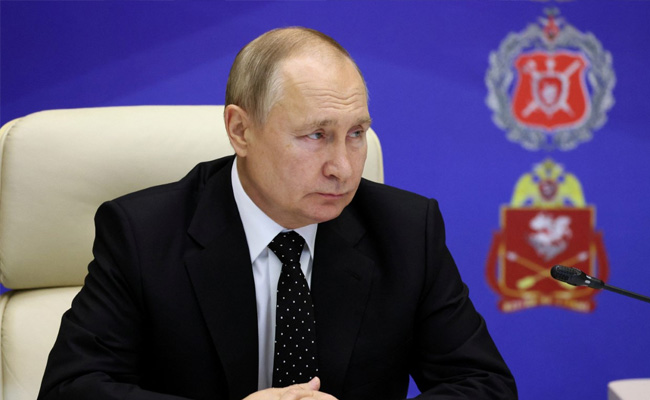)
Brussels, Belgium:
Sweden said that European Union member states agreed on price caps for Russian oil products on Friday. This was done before an international embargo was set to start over the weekend.”EU ambassadors approved price caps on petroleum products today before they are finalised by the European Council, which is made up of EU member states,” tweeted officials from Sweden, which is currently in charge of the EU.
This is the latest step taken by the international community to limit Russian President Vladimir Putin’s war chest for his attack on Ukraine by going after his most important exports.
In December, the EU put a ban on Russian crude oil coming in by sea and, along with its G7 partners, set a limit of $60 per barrel for all exports.
The second EU-wide ban, on fuel from Russia, will start on Sunday. It goes after refined oil products like gasoline, diesel, and heating fuel that come from Russia on ships.
At the same time, the EU and the G7 group of wealthy democracies have agreed to put a price cap on Russian exports of these goods to world markets.
The price caps work by setting a maximum price for the fuel that EU ships can carry.
The Swedish EU presidency said that the price caps agreed to by the bloc’s members were “an important agreement as part of the ongoing response by EU and partners to the Russian war of aggression against Ukraine.”
It didn’t say what the price caps were for different kinds of oil. Later on Friday, EU officials were going to talk to the press about this.
The European Union (EU), which is made up of 27 countries, was looking at proposals from the European Commission, which is the EU’s governing body, to set a limit of $100 per barrel for more expensive products like diesel and $45 per barrel for cheaper products like fuel oil.
Diplomats said that Poland and the Baltic states, which were the toughest on Russia sanctions in the EU, wanted the price to go down to cut Moscow’s income even more.
But setting the levels is tricky because the West doesn’t want to stop all Russian oil from going to world markets and cause prices to go up everywhere.
The Kremlin warns of “imbalance” in the market.
Before the embargo went into effect, the Kremlin criticised the EU, saying that it would “lead to a further imbalance in the international energy markets.”
“We are taking steps to protect our interests against the risks,” said Dmitry Peskov, a spokesman for the Kremlin.
Moscow’s war in Ukraine was a rude awakening for the EU, which had been running its industries for years on cheap fossil fuels from Russia.
Brussels says that because of the crude oil embargo, the EU has stopped getting about 90% of its oil from Russia. However, exceptions were made for pipeline deliveries to landlocked countries like Hungary.
Also read:- World Cancer Day 2023: Don’t make the mistake of ignoring these 8 ‘silent’ symptoms of cancer!
During a visit to Kyiv on Thursday, European Commission President Ursula von der Leyen said that the current price cap on Russian oil was already costing Moscow about €160 million ($175 million) every day.




